Make My Trailer, Award-Winning Service 🏆 Trailer Dealer of the Year: More Than Just Low Prices. From stock units to custom builds, our enclosed trailers for sale come with strength, savings and a long-term peace of mind included.
Over 8000 Sold Trailers
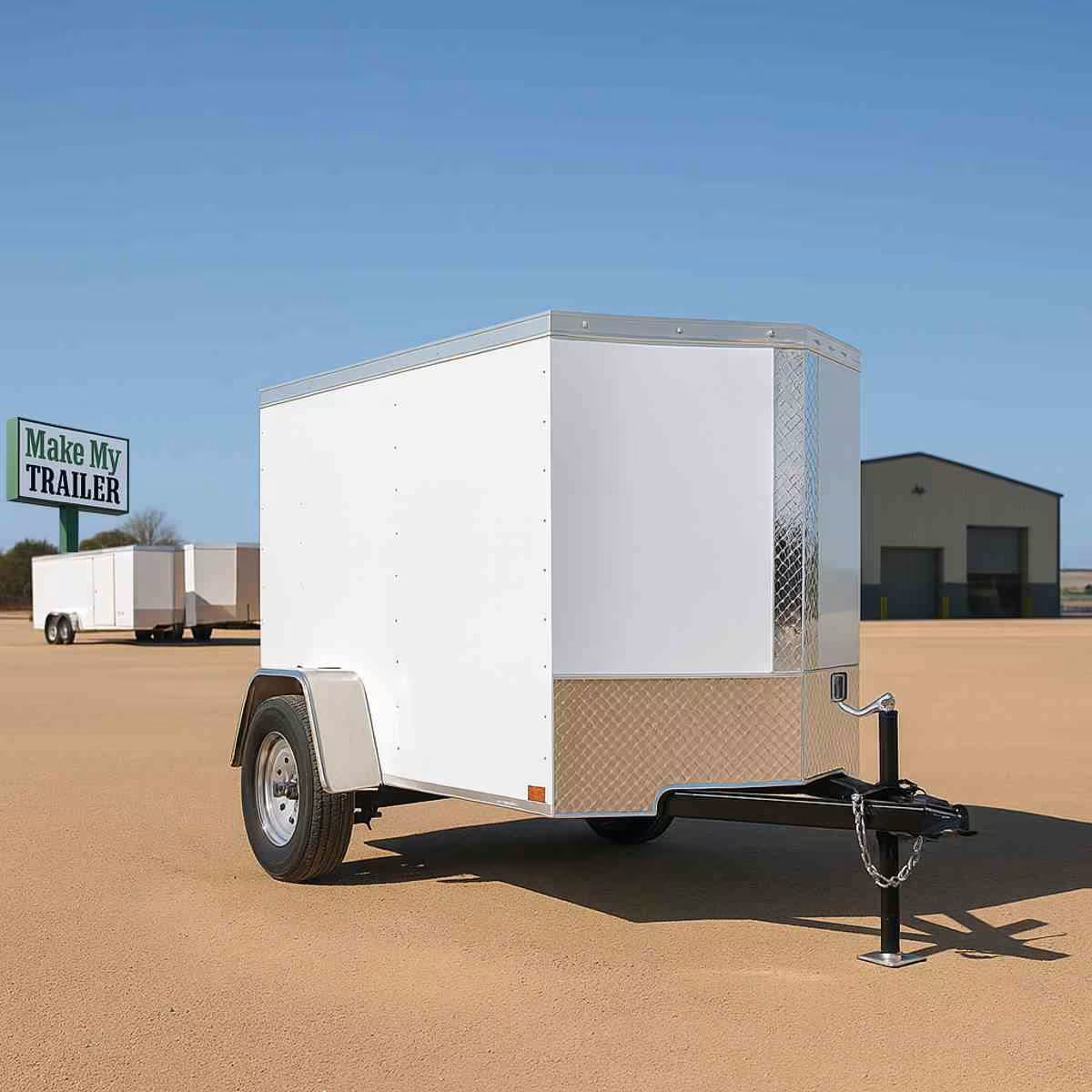
Compact power for tight spaces and quick hauls.
Available Sizes (4' Wide)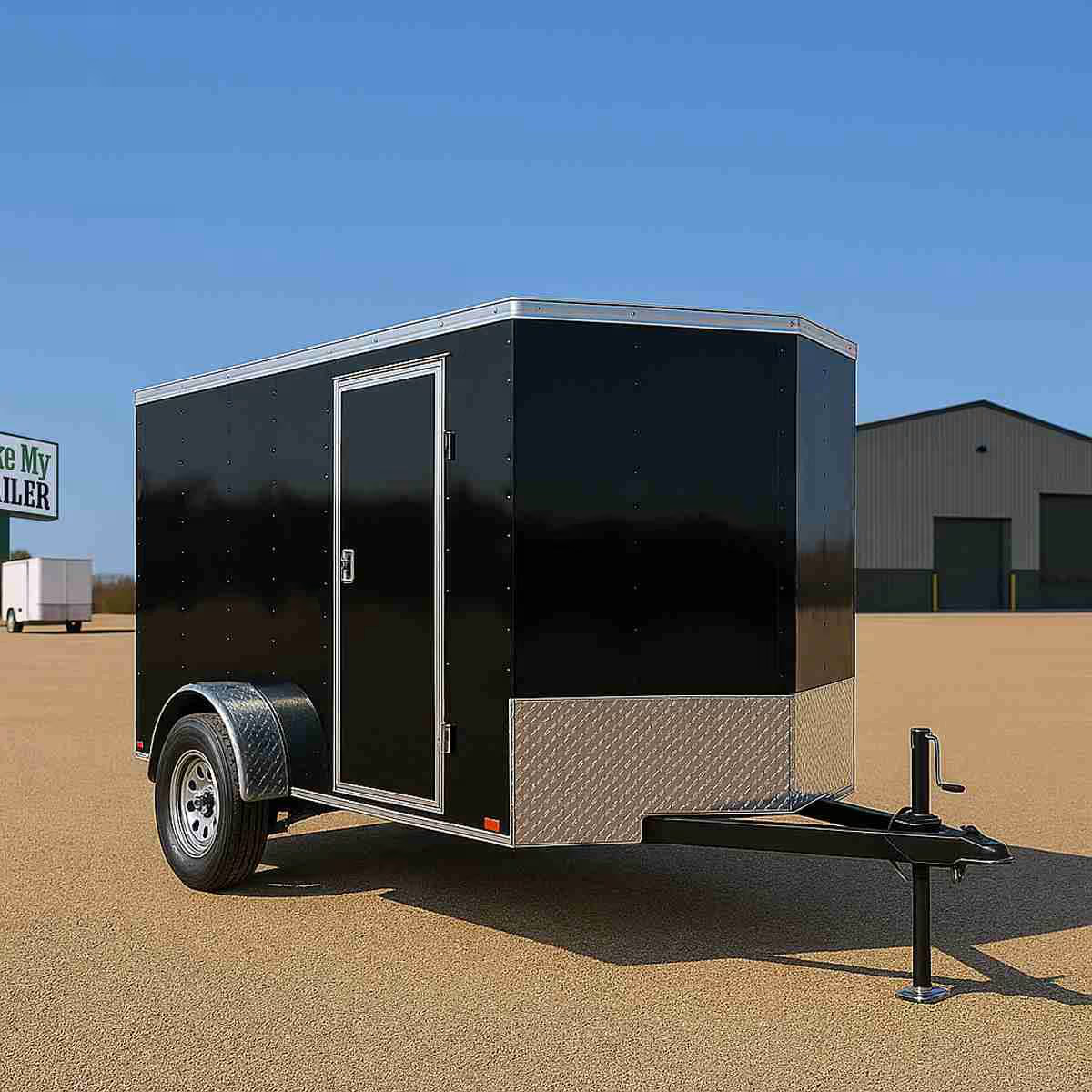
Small footprint, big hauling capability.
Available Sizes (5' Wide)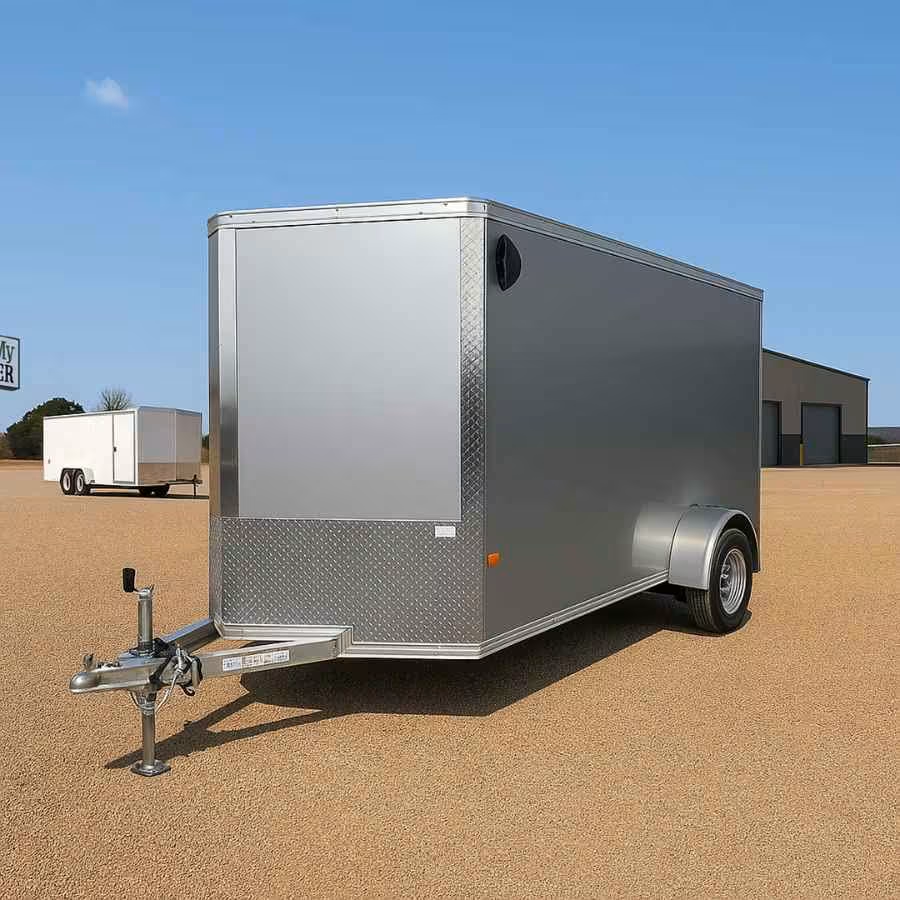
Versatile size for work, play, and everything in between.
Available Sizes (6' Wide)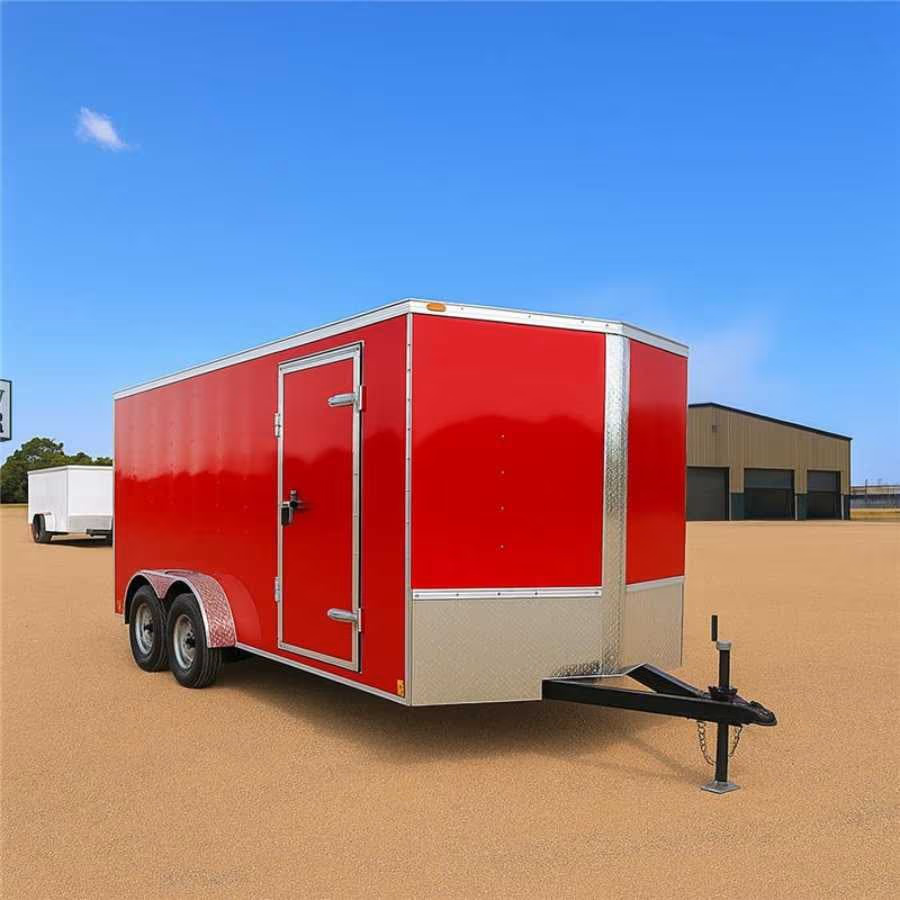
Spacious, stable, and built for serious jobs.
Available Sizes (7' Wide)
Maximum width for maximum capacity and performance.
Available Sizes (8.5' Wide)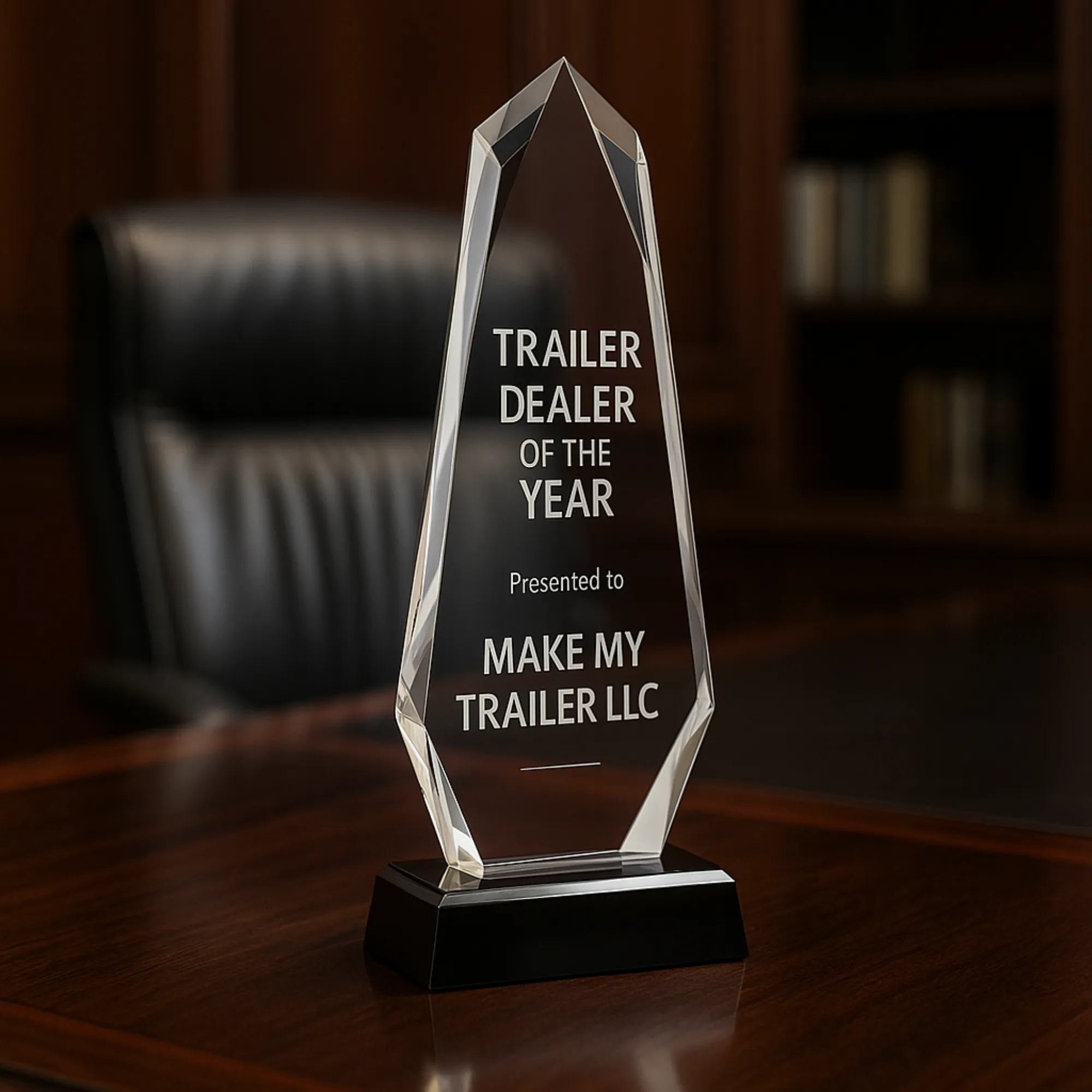
Award-Winning Service 🏆 Trailer Dealer of the Year

All our enclosed trailer sizes are discounted for the next 2 weeks
How do I get a quote?
Option #1:
Call Us and we’ll discuss your trailer needs: (912) 202-4732.
Option #2:
Text us your full name, email, and trailer preferences, and we’ll send your quote your away: (912) 202-4732.
Option #3:
Email us with your preferred trailer size and options, and we’ll respond with a detailed quote: Sales@MakeMyTrailer.com.
Option #4:
Create a quote using our system, just select the size trailer you’re interested in and follow the instructions: GET A QUOTE.
Once your quote is approved and the deposit is received, we’ll submit your order to our production team. They’ll review the details, confirm any options or special instructions with you, and then begin building your trailer.
The moment your trailer is ready, you’ll hear from us! We’ll send a confirmation email packed with all the details you need — from clear pick-up instructions to how to settle the remaining balance. We’ll also send you a quick text just in case the email slips by. And because we know you’re excited to see it, we’ll include photos of your finished trailer so you can get that first proud look before you even arrive.
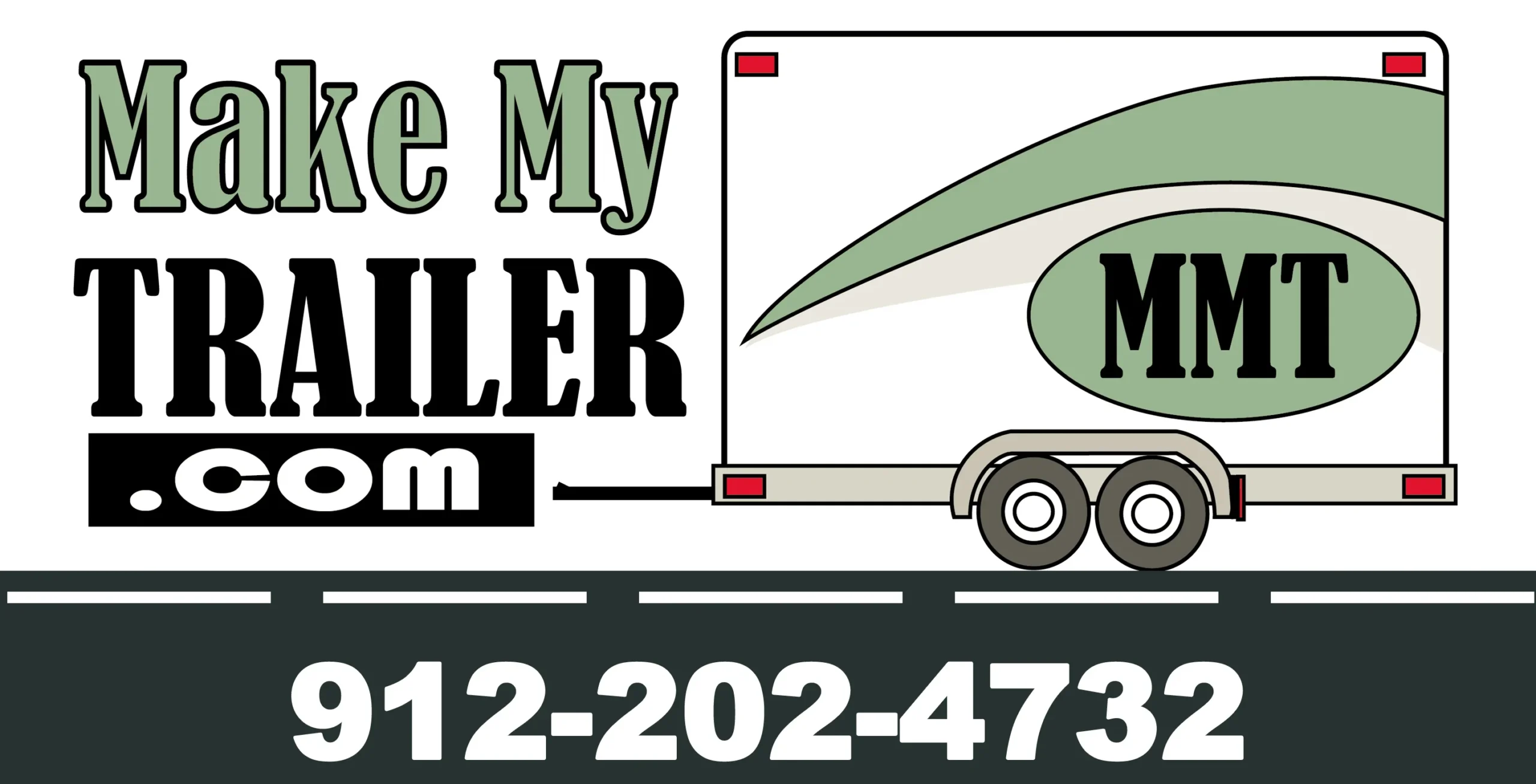
Looking for Another Size?
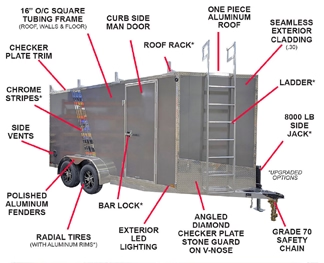
Buyers frequently ask whether to go for steel or aluminum construction, how skin thickness influences durability, and what to look for in floor cross-members, axle types, and other build components. These factors strongly shape purchase decisions.
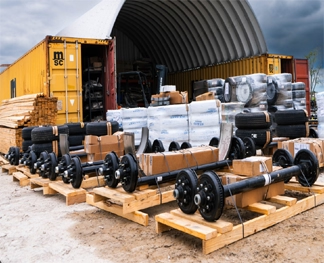
Determining the right trailer means considering size (width, length, height), axle type (single or tandem), roof style (flat or rounded), and door style (ramp or barn). Each choice affects capacity, durability, ease of loading, and long-term performance.
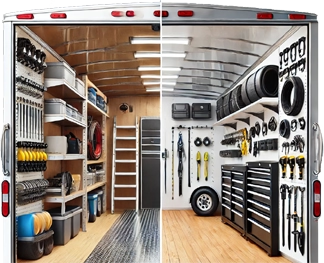
Many users explore how to tailor trailers to their needs—adding shelves, lighting, ventilation, flooring options, or branding wraps—and they often search for specific types such as car haulers, concession trailers, or mobile-business-ready units
Learn More About Enclosed Trailers
Looking for enclosed trailers for sale in Florida? Make My Trailer builds new enclosed trailers in Douglas, Georgia and helps Florida buyers get the right trailer for work, play, and everything in between—at factory-direct pricing. Whether you want a stock unit that’s ready now or a custom build with your exact options, we make it simple to quote, reserve, and schedule delivery.
Our Florida customers buy enclosed trailers for landscaping setups, pressure washing rigs, mobile storage, motorsports, vendor equipment, and more—because an enclosed trailer protects your gear from weather, theft, and road debris. You’ll also get peace of mind with a 5-year warranty, plus access to custom builds and stock units ready today.
Get a fast quote: Call or text (912) 202-4732 or use the quote form here:
Request a Quote: https://makemytrailer.com/foot-wide-enclosed-trailers/
If you’re comparing marketplaces and dealer listings, you’ll notice many results focus on used inventory and “find a dealer” navigation. We take a simpler approach: choose the size and options you need, confirm availability or build timeline, then reserve your trailer and plan delivery.
Stock units — If we have your configuration available, you can reserve it and move quickly.
Custom builds — Choose size, height, door style, axle setup, color, interior upgrades, and accessories.
Delivery — Ask about delivery options for your Florida location when requesting your quote.
Prefer to pick up instead? Pickup is available at our Douglas, GA location (details below).
The “best” enclosed trailer is the one that fits your cargo, your tow vehicle, and your day-to-day workflow. Most buyers start by selecting the width (how roomy it feels inside), then the length (how much you can load), and finally the axle/weight rating (how it tows and what you can safely carry).
Compact, easy to maneuver, and great for tight parking, light equipment, and quick runs.
Explore available 4′ wide options here:
https://makemytrailer.com/foot-wide-enclosed-trailers/#fourwide
A small footprint with more flexibility for tools, totes, and small equipment—popular for personal hauling and weekend projects.
See current 5′ wide options:
https://makemytrailer.com/foot-wide-enclosed-trailers/#fivewide
A versatile “do-it-all” category for business use and recreational hauling. Many Florida buyers choose 6′ wide for a balance of towing stability and usable interior space:
https://makemytrailer.com/foot-wide-enclosed-trailers/#sixwide
More room for larger equipment, stacked storage, or a more comfortable workspace inside the trailer. If you’re hauling heavier loads frequently, ask about axle and brake options:
https://makemytrailer.com/foot-wide-enclosed-trailers/#sevenwide
Maximum interior space for serious hauling—ideal for contractors, motorsports, and high-volume gear. If you need a wide-body configuration, request a quote and we’ll help you spec it correctly:
https://makemytrailer.com/foot-wide-enclosed-trailers/
To avoid overbuying (or ending up cramped), use this quick checklist. If you’re not sure on any item, we can help you choose the best fit during your quote.
Door style: ramp door for rolling equipment (mowers, bikes, carts) vs. barn doors for simpler cargo access.
Axle setup: single axle for lighter loads and shorter lengths vs. tandem axle for heavier setups and improved highway stability.
Interior height: standard height vs. extra height if you want easier walk-in access or taller equipment clearance.
Ventilation & lighting: roof vent(s), interior lighting, and exterior LED lighting for visibility and safety.
Flooring & walls: plywood thickness/finish and wall reinforcement depending on how hard you’ll use it.
Tie-down points: D-rings or track systems if you secure equipment regularly.
Weather readiness: Florida humidity and storms make secure seals, proper venting, and durable materials important.
If your goal is speed, a stock unit is often the fastest path—especially if the size and door configuration match what you need. If you have a specific workflow (for example, shelving for mobile storage, a pressure-washing setup, or a race trailer layout), a custom build can save you time and frustration later because it’s designed around your equipment from day one.
Quick start: Tell us
width & length,
what you’re hauling,
your tow vehicle, and
whether you prefer delivery to Florida or pickup in Georgia.
Use the quote form or call/text (912) 202-4732. We’ll confirm availability or build timeline, pricing, and the best options for your needs.
Once you choose a configuration, we’ll guide you through the reserve process so your unit is held for you (especially important for in-demand sizes).
Yes. Many buyers customize door style, height, axle configuration, color, interior upgrades, and accessories so the trailer matches how they actually use it.
Yes—ask about delivery options when requesting your quote so we can plan the best delivery approach for your location.
Pickup is available in Douglas, GA at 91 Harvey Vickers Road, Douglas, GA 31535.
If you need financing, mention it during your quote request and we’ll share the available next steps.
If you’re comparing new vs. used listings, keep in mind: used trailers can save money upfront, but condition, maintenance history, and hidden issues vary widely. Buying new gives you a known build and warranty coverage.
We offer a 5-year warranty. Ask your sales rep to confirm coverage details for your exact configuration.
You’ll want the right hitch setup, proper towing capacity, correct ball size, functioning trailer lights, and (when required) brakes. If you tell us your tow vehicle and what you’re hauling, we can recommend a safer match.
We offer multiple widths and configurations—browse available widths and sizes here:
https://makemytrailer.com/foot-wide-enclosed-trailers/
Make My Trailer
91 Harvey Vickers Road
Douglas, GA 31535
Call/text (912) 202-4732 or request a quote here:
https://makemytrailer.com/foot-wide-enclosed-trailers/











Pickup Address:
91 Harvey Vickers Road, Douglas, GA, 31535